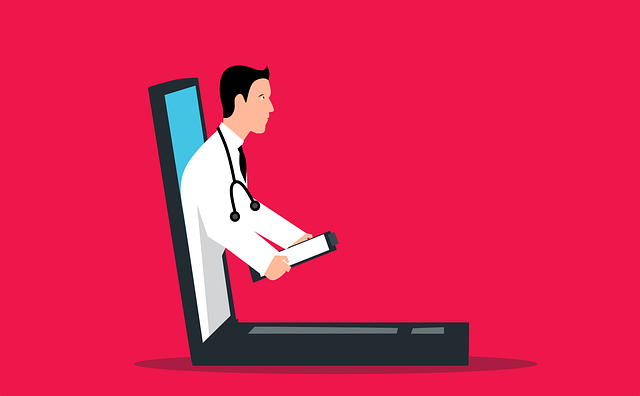In today's dynamic healthcare landscape, healthcare marketing services are vital for providers aiming to connect with patients and drive growth. These services encompass strategic planning, brand development, digital marketing, content creation, and patient engagement tactics tailored to navigate unique healthcare challenges. By leveraging these strategies, organizations can effectively communicate medical information, build trust, and differentiate themselves. Effective healthcare marketing services increase awareness, foster meaningful connections, enhance patient satisfaction, and improve health outcomes through increased communication and loyalty. Key aspects include high-quality content creation, SEO optimization, social media engagement, ethical considerations, and measurable KPIs. Emerging technologies like AI and VR will further reshape the future of healthcare marketing.
In today’s digital age, effective healthcare marketing services are essential for engaging patients and promoting medical practices. This comprehensive guide delves into the strategies behind successful content marketing in the healthcare sector. From understanding the unique needs of healthcare marketing to creating compelling content, leveraging social media, and navigating ethical considerations, this article provides a detailed overview. Discover how to build an online presence, measure campaign impact, and stay ahead with emerging trends shaping healthcare marketing services.
Understanding Healthcare Marketing Services: A Comprehensive Overview

In the dynamic landscape of healthcare, understanding healthcare marketing services is paramount for providers to connect with patients and foster growth. This encompasses a multifaceted approach that goes beyond traditional advertising. Comprehensive healthcare marketing services involve strategic planning, brand development, digital marketing, content creation, and patient engagement tactics tailored to address unique healthcare challenges and regulatory environments.
By leveraging these services, healthcare organizations can effectively communicate complex medical information, build trust with potential patients, and differentiate themselves in a competitive market. A well-executed marketing strategy for healthcare institutions not only drives awareness but also fosters meaningful connections, ultimately enhancing patient satisfaction and outcomes.
The Power of Content in Engaging Patients and Customers

In today’s digital age, content is king in healthcare marketing services. It’s a powerful tool to engage and educate patients, fostering trust and transforming them from passive recipients of information into active participants in their health journeys. Through compelling narratives, informative blogs, educational videos, and interactive infographics, healthcare providers can break down complex medical jargon, address common concerns, and offer valuable insights that resonate with their audience.
This personalized approach not only enhances patient understanding but also strengthens the doctor-patient relationship. Engaging content encourages two-way communication, enabling patients to ask questions, share experiences, and actively contribute to their care plans. As a result, healthcare organizations can build a loyal following, improve patient satisfaction, and ultimately drive better health outcomes through effective healthcare marketing services.
Strategies for Creating Compelling Healthcare Content

In the realm of healthcare marketing services, creating compelling content is paramount to engaging and educating patients. Strategies should focus on providing valuable information that addresses common health concerns, explains complex medical procedures, and promotes healthy lifestyles. Leveraging patient testimonials, expert interviews, and data-driven insights can lend credibility and trustworthiness to the content. Visual elements such as infographics, videos, and high-quality images also play a crucial role in enhancing understanding and keeping audiences engaged.
Tailoring content for different audience segments is essential. This might involve creating age-specific or condition-focused articles, ensuring that each piece resonates with its intended readers. Regular updates and a diverse range of formats—including blogs, whitepapers, and email newsletters—can keep healthcare practices top of mind with their audiences. By integrating SEO best practices into content creation, healthcare marketers can increase online visibility and attract potential patients seeking reliable information.
Building a Strong Online Presence for Medical Practices

In today’s digital era, building a strong online presence is paramount for medical practices to thrive in the competitive healthcare marketing landscape. A well-crafted website that showcases services, patient testimonials, and a clear call to action serves as a cornerstone for attracting and retaining patients. Integrating search engine optimization (SEO) strategies ensures that potential patients can easily find the practice online, leveraging keywords related to specific medical conditions and services offered.
Effective content marketing plays a crucial role in establishing expertise and building trust. Regularly updating the website with informative blog posts, articles, or videos addressing common health concerns not only educates readers but also positions the practice as a thought leader in its field. Engaging social media platforms further amplifies reach and allows for direct interaction with potential patients, fostering a sense of community and accessibility.
Leveraging Social Media to Connect with Your Audience

In today’s digital era, social media platforms offer an unparalleled opportunity for healthcare marketing services to connect with their audience on a personal level. By leveraging channels like Facebook, Instagram, and Twitter, healthcare providers can engage directly with patients, potential clients, and community members. This two-way communication enables the sharing of valuable health insights, dispelling myths, and building trust, which is crucial in the healthcare industry. With creative content strategies, healthcare organizations can transform these platforms into powerful tools for patient education and community outreach.
Effective social media marketing involves tailoring content to resonate with diverse audiences. From informative blog posts and live Q&A sessions to engaging video tutorials, these tactics foster a sense of community and encourage open dialogue. By actively listening and responding to comments and messages, healthcare marketers can address concerns, gather valuable feedback, and ultimately improve patient satisfaction and loyalty. This direct connection is a game-changer in healthcare marketing, fostering relationships that transcend the traditional doctor-patient dynamic.
Ethical Considerations in Healthcare Content Creation

When creating content for the healthcare industry, ethical considerations are paramount. As a sector that deals with sensitive information and often high-stakes decisions, every piece of content must maintain integrity and accuracy. Healthcare marketing services must ensure that any claims made about treatments or products are backed by substantial scientific evidence and presented in a transparent manner. This includes avoiding exaggerated promises or misleading statements that could unduly influence patients’ choices.
Content creators should also be mindful of patient privacy and confidentiality. Patient stories and testimonials are powerful tools but must be used responsibly, with explicit consent and the protection of personal details. Additionally, maintaining unbiased perspectives is crucial; healthcare content should never promote specific brands or products over others unless absolutely necessary and supported by evidence. This ethical framework not only ensures the trustworthiness of the content but also aligns with legal requirements for responsible healthcare marketing.
Measuring Success: Analyzing the Impact of Healthcare Marketing Campaigns

Measuring success is an integral part of any marketing strategy, and healthcare marketing services are no exception. When evaluating the impact of campaigns, several key performance indicators (KPIs) come into play. These metrics help understand patient engagement, brand awareness, and conversion rates. By analyzing website analytics, social media insights, and campaign-specific tracking links, marketers can gain valuable insights. For instance, increased web traffic from targeted healthcare marketing may indicate successful patient outreach, while higher conversion rates could reflect improved lead generation for medical practices or hospitals.
Moreover, qualitative data through patient feedback forms, surveys, or reviews can provide a deeper understanding of campaign effectiveness. This allows healthcare providers to assess how their marketing efforts resonate with the target audience and make informed decisions to refine future strategies. Regularly reviewing and analyzing these KPIs ensures that healthcare marketing services remain focused on delivering tangible results, ultimately enhancing patient experiences and outcomes.
Future Trends Shaping Healthcare Marketing Services

The future of healthcare marketing is being reshaped by emerging technologies and shifting consumer behaviors. Artificial intelligence (AI) and machine learning are expected to play a significant role in personalizing patient experiences, enabling data-driven insights for more effective campaigns, and streamlining content creation processes. Virtual and augmented reality could transform how healthcare information is delivered, making complex medical concepts more accessible and engaging. Additionally, the rise of social media platforms and influencer marketing will continue to impact healthcare communication, offering direct connections with patients and fostering trust through authentic narratives.
Integrating these trends will require healthcare marketers to focus on creating dynamic, patient-centric content that leverages technology for better engagement. As the healthcare industry becomes more digital, understanding where the trends intersect with patient needs will be crucial for developing innovative marketing strategies. This evolution ensures that healthcare marketing services remain relevant and effective in a rapidly changing landscape.
